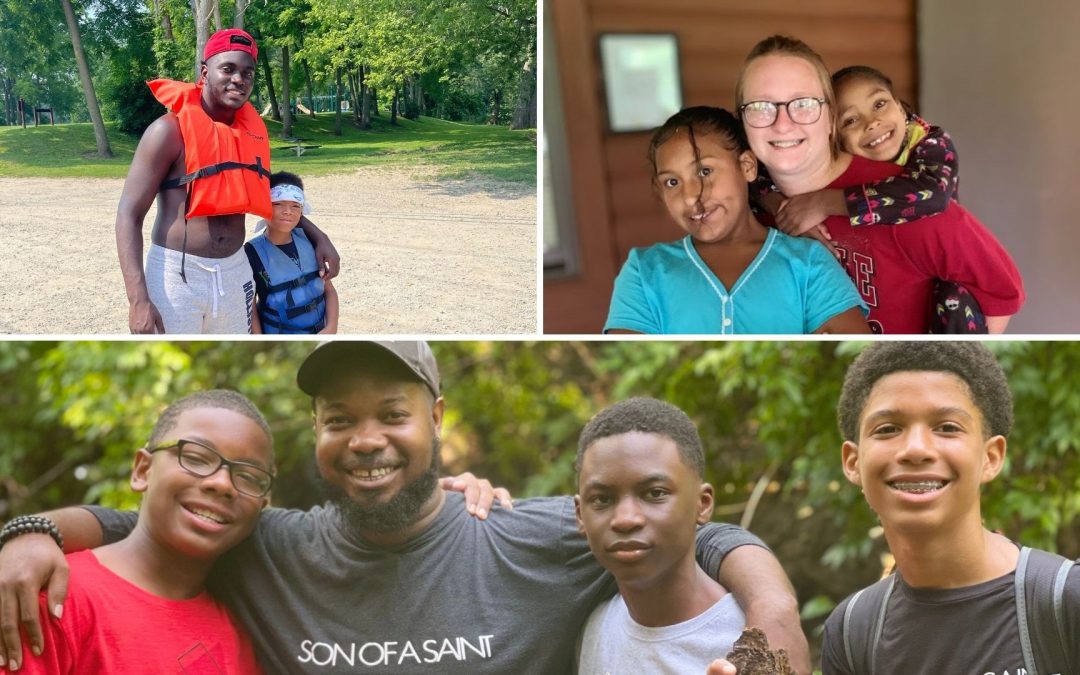All kids need attention and relationships with adults in their lives. Further, some kids need an extra dose beyond their home life and school. To be sure, mentors can fill this need. A mentor is an older child or adult who spends quality time with a child. They provide guidance, support, encouragement, companionship, and fun. In other words, they offer the child a positive role model. Another key point is that a mentor is not just for a struggling or at-risk child. There are many benefits to any child. Mentorship is one of the reasons why the Jameson Camp Summer Camps are such a success for children.
Benefits of HAVING a Mentor
A young person receives many benefits from a mentorship relationship:
- Someone who provides encouragement and support.
- Kids who have a mentor tend to have higher self-esteem and confidence. They help a child to recognize their strengths and successes.
- A mentor offers a child someone to talk to about problems that come up in life. Problems that they may not feel comfortable talking about with their parents or teachers.
- Many kids are reluctant to ask for help when they need it. Having someone to talk to can make the difference of having an adult that can support them rather than having the child go through the crisis on their own.
- Spending time with older people helps a child develop interpersonal skills.
- Mentorship often leads a child to do better in school.
- Mentors can offer a child structure and guidance in doing schoolwork – especially when they may not otherwise have someone to support them.
But wait, there is still more benefits to consider!
- Kids with mentors are less likely to drop out of school.
- Mentors can help a child learn about career possibilities and how to reach them.
- Mentees are more likely to consider further education as an option.
- A mentor can help kids navigate the process of finding further education – from choosing a program, to applications, to scholarships, to financial aid.
- Kids also tend to learn how to make healthier choices for their lives. They may not have other adult guidance in making positive choices such as diet, exercise, medical care, etc.
- A child is exposed to a positive role model that he or she may not have otherwise.
- Kids with an example to follow are less likely to drink alcohol or use illegal drugs. They are less likely to engage in high-risk behaviors.
- A mentor teaches a child how to build healthy relationships with others. They learn how to form a strong bond and to maintain healthy boundaries.
- Kids struggling with life challenges can benefit from someone who has been through similar challenges. The child will feel there is someone who is able to understand.
- A mentor can help a child improve behavior at home and at school. A child learns self- regulation, appropriate social constructs, and self-control.
- Kids with a mentor have better communication skills.
Benefits From BEING a Mentor
A mentor benefits from the relationship as much as the child does! As a consequence the relationship is mutually beneficial.
- A mentor receives great personal fulfillment in the role as a mentor.
- Acting as a mentor builds confidence and increases self-esteem.
- Becoming a mentor provides an understanding of children. This is especially beneficial for future educators, counselors or other professionals that work with children.
- Mentors build valuable communication skills to connect with the child and with the family, other mentors, and a mentoring organization.
- Leadership skills are built through mentoring.
- Mentors form relationships with other mentors.
- Being a mentor builds interpersonal skills.
- Mentors learn to build healthy relationships that build a close bond and maintain healthy boundaries.
- Many mentors say they have a new understanding and perspective about the difficulties disadvantaged youth face in society – and how those issues can follow them into adulthood.
- Mentors gain appreciation for their own advantages and/or overcoming their own disadvantages.
Who Can Be a Mentor?
Everyone benefits from being in a mentorship relationship. Any older child or adult in a child’s life can become a mentor:
- Coach
- Teacher
- Club Leader
- Extracurricular Teachers Such as Art or Music.
- College Students
- Neighbors
- CAMP COUNSELORS
- Family Friends
- Coworkers
- Mentoring Organizations
Here at Jameson Camp we want to help young people “get outside and grow inside.” In essence, our staff has been impacting the lives of young people since 1928. With this intention, our programs provide a high-quality staff that offer campers the mentors that are so beneficial to them!
Are you on Facebook? We are, too! Let’s be friends!

